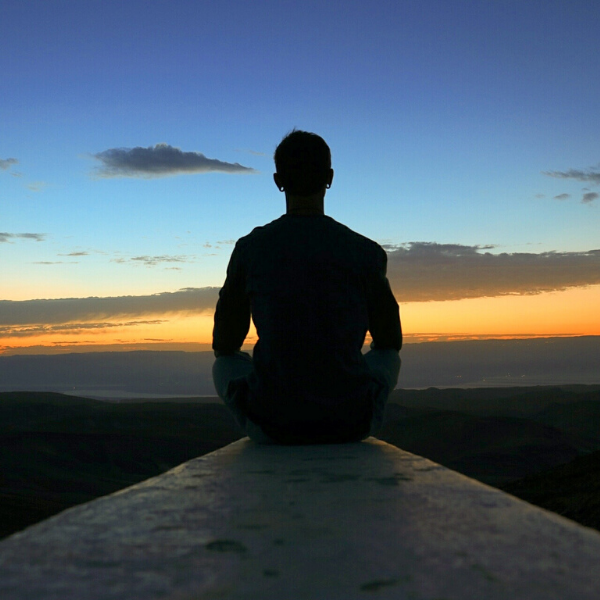Mindfulness
Mindfulness has been the buzzword on everyone’s lips for a few years now, and it’s a word I’ve heard countless times in contexts all the way from lectures to social media to sitting in my counsellor’s office. The idea of being able to take notice of a moment and all the thoughts and feelings that go along with it is, I think, important for staying grounded in this stressful little world of ours.
But I also don’t think we talk about mindfulness correctly. We often talk about it like it’s some kind of one-shot potion that heals our stress and sadness and leaves us good as new. Thinking like that always set me up for failure. It seemingly worked like that for the people in the scientific studies and the people on Instagram, but it just wasn’t working that way for me. I was still losing sleep over University, my head would spiral all day if I had a bad thought in the shower, and as hard as I tried I just couldn’t ‘clear my head’.
I was blurting all of this to someone one day when they put their hand on my arm and with a bemused expression told me to stop. It took this for me to realise I was thinking way too hard about the whole thing, which is kind of the opposite of what ‘mindfulness’ is. Taking notice isn’t going to heal my mental health issues alone, and it isn’t going to stop me from stressing about the world around me. The minute someone told me that, my head totally cleared. I had been putting so much pressure on ‘mindfulness’ to make me feel better that I was actually ruining it for myself.
How you can do it
That night I re-tried what is now my favourite thing to do, a body scan. In case you’re unfamiliar, I’ll walk you through how I do it (but remember, it will work differently for everybody). Sometimes I use a guided video on YouTube or on the Headspace app, but I also do it on my own. Here’s how you can too:
- Lie, sit or stand somewhere, it doesn’t matter where, as long as you’re comfortable. I’ve done this stood by my desk in the library before so I promise you’ll look less ridiculous wherever you are than I did then.
- When you’re comfortable, close your eyes. Take the deepest breath you’ve taken all day, and really pay attention to it coming in through your nose or mouth, down your airway, and filling up your belly. Hold the air for a second, and exhale just as deeply. As you do so, feel your body become heavier, and sink slightly into the floor. Repeat this a few times, and then return your breath to normal, but bring the focus back to it when your mind wanders.
- On your next breath in, feel the air move all the way down to your toes. Just observe how they’re doing. Really take notice of your toes, acknowledging their presence, any aches or pains, the feeling of the floor or your clothes against them. Slowly start to extend your scan through your feet: the balls of the feet, the arches, and back towards the heel. If your mind starts to wander, bring the attention very gently back to the breath, and then resume your body scan. Each time you breathe out, allow any tension you’ve built up in those muscles to melt away.
- From the feet, work your way slowly up through the ankles, then the calves and shins, and into the top half of your legs. From your legs, take the scan into your bum, feeling it against the chair if you’re sat down, into your lower back and round into your tummy. Then slowly incorporate your chest, feeling the rise and fall of your breath, and your upper back. Let the scan trickle down your arms and into your fingers. Finally allow the scan to come up into the neck, round the back of the head, and into the face.
- Keep the focus on the body for a minute or so, and then become gently aware of the space around you: the sounds, the feelings and the awareness of people around you if you’re not alone. Acknowledge all of these things without really thinking about them, just let them be.
- When you feel ready, open your eyes slowly and thank yourself for taking some time to be present.
How it helps me
As someone who struggles with dissociation, a body scan every day – either before bed or in moments when I’m feeling particularly stressed – really works for me. Sometimes it can be really hard not to get frustrated with myself for constantly thinking about other things, and sometimes there’s nothing but the odd thought floating across it. But the biggest thing for me has been letting go of any expectations of myself during mindfulness. In letting go of these expectations, I was able to make mindfulness really work for me, to give me a moment, however small, to breathe, be grounded in my body, and realise that many of my thoughts, good or bad, will pass if I only let them.
Be kind to yourself and find some time to stay grounded. A body scan won’t work for everyone, but whatever works for you, don’t treat it as an indulgence, treat it as a key part of self-care. You got this!
Written by Wellbeing Champion, Josh Baird.

